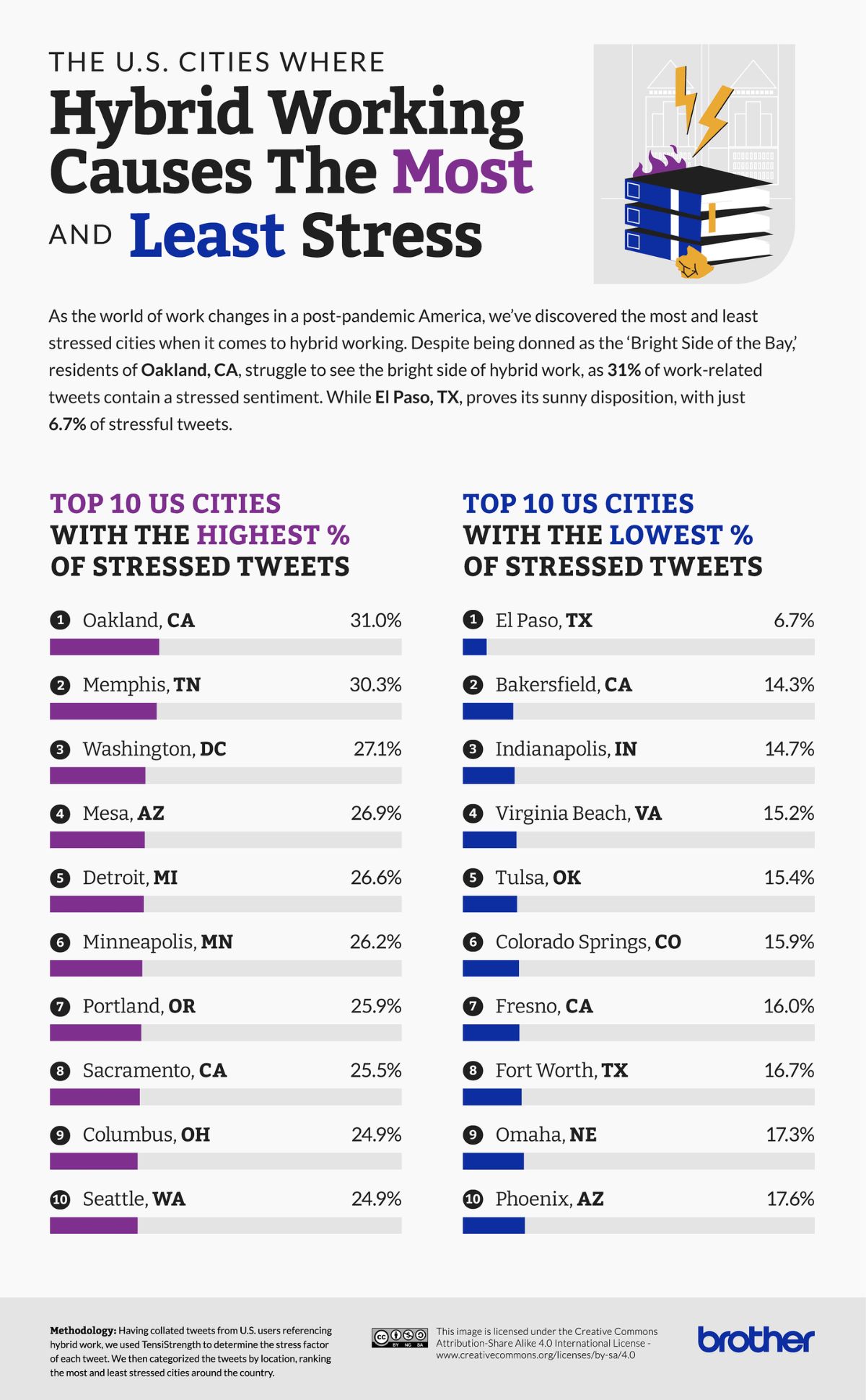Over half (58%) of U.S. white collar professionals are currently operating on a hybrid work model, but how each employee receives the arrangement varies according to new analysis.
Taking data from Twitter, business solutions firm brother.co.uk searched through geotagged tweets to see exactly how hybrid workers are taking to these new work policies.
According to the analysis, the states with the most stress-related hybrid work tweets were:
- Alaska (31.3%)
- Montana (28.9%)
- Arkansas (26.6%)
- Oregon (26.4%)
- South Dakota (25.3%)
- North Dakota (24.4%)
- Minnesota (28.9%)
- Connecticut (24%)
- New York (22.9%)
- Virginia (22.8%)
On the opposite end of the spectrum, only 16.4% of tweets from Hawaiins showed distress over hybrid work.
While the top cities for stressed hybrid work-related tweets came from bustling areas like Oakland and Seattle, the reasons for stress differ. States in these regions are more likely to lean on flexible work arrangements thanks to the number of technology companies that exist, but they may not have the tools to efficiently operate.

Knowing this, it can be determined that among the top causes of stressful hybrid work situations are weather, internet connectivity, distracting environments and poor business planning.
To combat this, brother.co.uk offers multiple suggestions to improve the overall hybrid work experience. This includes investing into home office solutions, using collaborative software like Asana and Slack and, perhaps most importantly, creating a hybrid work policy that is easy to comprehend, specific and detailed.



 Dr. Gleb Tsipursky – The Office Whisperer
Dr. Gleb Tsipursky – The Office Whisperer Nirit Cohen – WorkFutures
Nirit Cohen – WorkFutures Angela Howard – Culture Expert
Angela Howard – Culture Expert Drew Jones – Design & Innovation
Drew Jones – Design & Innovation Jonathan Price – CRE & Flex Expert
Jonathan Price – CRE & Flex Expert











